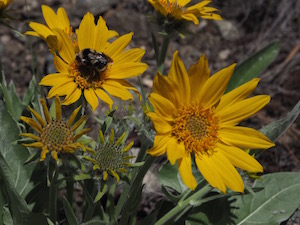
Funding source: Environment Canada, Ecosystems Partnerships Program
Collaborating organisations: Okanagan Collaborative Conservation Program; Okanagan Basin Water Board
Click here for mapping and reports from Year 1 of the project.
Summary: The Project will map the historical, current, and projected future distribution and value of Ecosystem Services (ES) for the Okanagan Region in British Columbia and develop a strategic policy framework for sustaining ES in the region given current and projected future land use change. Ecosystem services (ES) are the benefits that humans obtain from ecosystems, and fall into categories of provisioning (e.g., food, water and fibre), supporting (e.g., habitat for biodiversity), regulating (e.g., erosion control, flood protection) and cultural (e.g., spiritual and physical well-being, aesthetics, recreational opportunities) (MEA 2005). The concept of ES provides an explicit link between humans and their environment, evoking the dependence of human populations on their ecosystems for quality of life and well-being. Increasingly, land and resource management policies seek to internalize ES into on the ground planning, however few methods exist for mapping and quantifying ES in a Canadian context. The Project will use the Okanagan Region in British Columbia as a pilot region to demonstrate the advantages and limitations of the ES approach in informing environmental conservation and planning decisions. The Okanagan region is an excellent candidate for a pilot project due to the strong engagement of regional stakeholders and the critical need for concerted, region-wide land use planning to accommodate rapid rates of land development in response to a human population growth rate which is currently one of the highest in Canada. ES in the Okanagan have been estimated to have a value of $6.7 billion/year (Parrott, 2014).
Once mapping is completed, an environmental policy framework document will be produced to outline priorities and options for identifying, conserving and restoring natural areas that provide ES.
This project is associated with the Okanagan Futures Project.
Students: Katey Kyle, graduate research assistant; Rachel Field, PhD student

